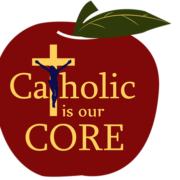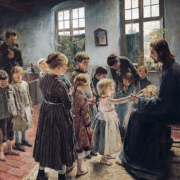A Mandate for Fidelity: Pope Benedict Urges Compliance with Theologian’s Mandatum
Introduction
On May 5, 2012, in his address to several American bishops during their required ad limina visit to Rome, His Holiness Pope Benedict XVI spoke on “religious education and the faith formation of the next generation of Catholics” in the United States. He said:
On the level of higher education, many of you have pointed to a growing recognition on the part of Catholic colleges and universities of the need to reaffirm their distinctive identity in fidelity to their founding ideals and the Church’s mission in service of the Gospel. Yet much remains to be done, especially in such areas as compliance with the mandate laid down in Canon 812 for those who teach theological disciplines.
The importance of this canonical norm as a tangible expression of ecclesial communion and solidarity in the Church’s educational apostolate becomes all the more evident when we consider the confusion created by instances of apparent dissidence between some representatives of Catholic institutions and the Church’s pastoral leadership: such discord harms the Church’s witness and, as experience has shown, can easily be exploited to compromise her authority and her freedom.1
Canon 812 of the Catholic Church’s Code of Canon Law states, “Those who teach theological disciplines in any institutes of higher studies whatsoever must have a mandate from the competent ecclesiastical authority.”2
The U.S. bishops’ 2001 guidelines for implementing Canon 812 describe the mandate, commonly identified by the Latin mandatum, as “fundamentally an acknowledgment by Church authority that a Catholic professor of a theological discipline is teaching within the full communion of the Catholic Church.” It recognizes “the professor’s commitment and responsibility to teach authentic Catholic doctrine and to refrain from putting forth as Catholic teaching anything contrary to the Church’s magisterium.”3 The mandatum is requested by the theologian in writing, and it is granted in writing by the local bishop who presides over the diocese where the theologian is employed.
The Holy Father’s new call for “compliance” with Canon 812 is something of a surprise for Americans. The mandatum has not received significant attention here since the 1990s, when it was vigorously opposed by major theological associations and the Association of Catholic Colleges and Universities, defended by the U.S. bishops and organizations including The Cardinal Newman Society and the Fellowship of Catholic Scholars, and widely debated in both Catholic and secular news media. One reason the topic has received little attention in the past decade is because it is very difficult for Catholics to identify which theologians have received the mandatum; many Catholic colleges and universities refuse to reveal such information, even to students and their families.
Now despite the long silence—or perhaps because of it—Pope Benedict has expressed concern about the lack of compliance with Canon 812, giving the matter renewed importance. Moreover, the Holy Father has declared that compliance with the mandatum is “especially” lacking in the work of Catholic colleges and universities to reaffirm their Catholic identity. This appears to assign to the colleges and universities some responsibility for compliance with Canon 812. In the United States, it is widely understood that it is the individual theologian’s responsibility to request the mandatum, drawing from the language of Canon 812. But many Catholic colleges and universities reject corresponding responsibilities—drawing from the nature of Canon 812 as a statute in the Code’s section on Catholic institutes of higher learning—to employ only Catholic theology professors who receive the mandatum and to disclose to students and others which theology professors have the mandatum.
In response to the Holy Father’s renewed attention to the mandatum, The Cardinal Newman Society has prepared the following report to provide Catholic families a better understanding of the mandatum, identify concerns about compliance with Canon 812, and suggest responsibilities of Catholic colleges and universities. We have invited several Church officials, college leaders, canon law experts, and theologians to contribute their insights. Quite appropriately, none of these wished to guess the personal concerns and intentions of the Holy Father, but they did identify serious compliance issues that may, we hope, find resolution in Catholic colleges and universities’ response to Pope Benedict’s charge.
Chief among those who responded to our queries is His Eminence Cardinal Raymond Burke, prefect of the Supreme Tribunal of the Apostolic Signatura and Archbishop Emeritus of St. Louis. He serves as the chief judge for the Vatican’s canon law courts and therefore has great influence on matters of canon law. Cardinal Burke is also a member of the Congregation for the Clergy and the Pontifical Council for Legislative Texts, and he is Ecclesiastical Advisor to The Cardinal Newman Society’s Center for the Advancement of Catholic Higher Education.
“The Holy Father only has a limited number of occasions during these ad limina visits to speak with bishops,” noted Cardinal Burke in his June 20th telephone interview with The Cardinal Newman Society, “and that he would devote one of the lengthier communications with the bishops to the subject [of the mandatum and Catholic higher education] certainly indicates to me that it is a serious concern on his part.”
His Excellency Bishop Joseph Martino, retired from the Diocese of Scranton and a long-time advisor to The Cardinal Newman Society, agrees that Pope Benedict’s address to the American bishops has real significance.
“The Pope does not bring up topics casually in his ad limina talks,” Bishop Martino told The Cardinal Newman Society. “When all of the Pope’s talks to the U.S.A. bishops during their recent ad limina visits are analyzed, you have a summary of the Pope’s pastoral ‘worries’ about the Catholic Church in the U.S.A.”
Resistance to the Mandatum
Catholic identity in Catholic higher education has been a significant concern of both the Vatican and the U.S. bishops for at least three decades. The mandatum is a key aspect of the Vatican’s response to secularization and theological dissent, and it is celebrated at several Catholic colleges and universities where theology professors are required to have the mandatum. Many other institutions, however, have resisted the mandatum, claiming it is an infringement on academic freedom and institutional autonomy.
In 1983 His Holiness, Blessed Pope John Paul II approved the revised Code of Canon Law, which for the first time in Church history included a section governing “Catholic universities and other institutes of higher studies”—including the mandatum requirement for theologians. But some American experts in canon law contended that the new section did not apply to most Catholic colleges and universities, because they are legally owned by trustees and not the Catholic Church. As a result, the mandatum was largely ignored.
In 1990 Blessed John Paul II resolved the matter with the constitution for Catholic higher education, Ex corde Ecclesiae,4 which assumes canonical jurisdiction over any college or university that has an “institutional commitment” to Catholic education, regardless of legal control. The constitution also insists on compliance with the mandatum.
Despite complaints from some theologians and academic societies, in 1999 the American bishops approved particular norms to implement Ex corde Ecclesiae in the United States,5 including the requirement that Catholic theology professors at Catholic colleges and universities obtain the mandatum. In 2001 the bishops issued guidelines for compliance with the mandatum.6 And last year the bishops completed a nationwide review of colleges’ and universities’ progress toward complying with Ex corde Ecclesiae, including specific discussion of the mandatum.7
Nevertheless, a 2011 survey of U.S. Catholic college and university leaders revealed that serious concerns remain. Forty-two percent of the respondents + Add New Issue said their institutions have neither a department nor a chair of Catholic theology as required by Ex corde Ecclesiae, and more than seven percent said that Catholic theology is not even taught in their institutions. More than a third (36 percent) said they did not know whether their theology professors have received the mandatum, 10 percent said some but not all of their theologians have received it, and another 6 percent said no professors have it.8
In June and July 2012, The Cardinal Newman Society contacted the public relations offices of the ten largest Catholic universities in America, ranked by their undergraduate student enrollment. We asked them to identify theology professors who have received the mandatum.
Only three of the ten universities replied by our deadline, and none provided the requested information. DePaul University spokesman John Holden wrote, “I believe this question misunderstands the mandatum process developed by the bishops. Faculty request the mandatum directly from the local ordinary. A university would not generally have this information.”
Father James Fitz, SM, vice president for mission and rector of the University of Dayton, reported likewise that the University views the mandatum “as a personal relationship between the theologian and the archbishop. …Therefore, the University does not have a list of those who have received the mandatum, nor does the University publish such a list.”
Marquette University spokeswoman Kate Venne explained that the mandatum is an obligation of the theologian, not the university, and information about who has the mandatum “is not something that is shared with the university or a department chair.”
The remaining seven large universities did not respond at all to our request: Boston College, Fordham University, Georgetown University, Loyola University Chicago, St. John’s University in New York, Saint Louis University, and the University of Notre Dame.
By contrast, other Catholic colleges and universities—including several that are recommended in The Newman Guide to Choosing a Catholic College9—have taken a much different approach to the mandatum. They see it as an institutional obligation to ensure that theology faculty have the mandatum, and they offer full disclosure to students and others.
In June and July 2012, The Cardinal Newman Society requested and received confirmation that all theology faculty have the mandatum at Aquinas College in Tennessee, Ave Maria University, Belmont Abbey College, Benedictine College, the College of Saint Mary Magdalen, DeSales University, Franciscan University of Steubenville, John Paul the Great Catholic University, Mount St. Mary’s University, St. Gregory’s University, Thomas More College of Liberal Arts, the University of St. Thomas in Texas, and Wyoming Catholic College. At The Catholic University of America, where the theology and religious studies department is a pontifical faculty, all professors have the similar missio canonica from the Archbishop of Washington.
The Mandatum and Catholic Higher Education
Pope Benedict’s May 5th address to U.S. bishops considers a key question: Is the mandatum only a theologian’s private, individual commitment of fidelity to the Church, or does it also have significance for a college or university’s Catholic identity? The Holy Father appears to confirm the latter.
Cardinal Burke reflected on Pope Benedict’s address in his interview with The Cardinal Newman Society. In that address, says Cardinal Burke, the Holy Father “mentions that some important efforts have been made, but that much remains to be done in terms of the Catholic identity of the Catholic colleges and universities, and then he cites specifically the implementation of Canon 812—namely that those who are teaching the theological disciplines in the Catholic university should have certification that they are teaching in communion with the Magisterium, the official teaching of the Church.”
So how is the mandatum important to the Catholic university? Cardinal Burke continues:
Well, it is the truth of the faith which is the highest goal of a Catholic education. Everything that a Catholic student studies at a university or college is directed ultimately to a knowledge of God and His plan for our world and for us.
And so everything that is taught at a Catholic university must relate in some way to this—what we might call this wisdom, this knowledge of God and of His plan for us. And it’s the professors of theology at the university who teach that highest form of learning, that learning towards which every other form of learning is directed at the university. And for that reason, of course, the Church wants to be sure that those who are teaching theology are sound and clear in their teaching.
…This is even more critical in our time in which we are living with a secularized culture, where there is so much confusion and error about the truth about ourselves, about our world, and the truth about God. So the Church is being particularly attentive that those who teach Catholic theology are indeed teaching in communion with the Magisterium.
The secularism in society, the errors which we find so commonly in many sectors of society, has its influence also on the Church. The Church must take her own prudent and necessary measures to make sure that error doesn’t enter in to the university level of the Catholic college where young people—and older people—are coming with the idea of obtaining a solid education to equip them for a lifetime of good and upright living. And that depends very much on the received theological education.
There are several indications that the Church regards compliance with the mandatum as integral to Catholic higher education. Most apparently, Canon 812 is situated in the section of the Code of Canon Law for Catholic universities. It was Ex corde Ecclesiae, the apostolic constitution on Catholic universities and not a document focused on theologians, that forced compliance with the mandatum seven years after Canon 812 had been published. The mandatum is a requirement of the U.S. bishops’ “Application of Ex corde Ecclesiae,” and it was a topic of the bishops’ review last year of the implementation of Ex corde Ecclesiae.
Asked for some insight into why Canon 812 would be situated in the Code’s section on Catholic higher education, Cardinal Burke again reiterated the Church’s great need for education that is faithful and authentic, which the mandatum helps ensure:
The Catholic university—and this is stated in a wonderful way in Ex corde Ecclesiae—provides a distinctive service in society of preparing young people, or even older people, in the various arts and sciences with a solid, Catholic foundation to their knowledge, earlier referred to as knowledge of God as He has revealed Himself to us in the Church.
And so the Church has always viewed the Catholic universities and Catholic colleges as a most important means of carrying out the work of evangelization. In other words, at the highest levels of the pursuit of knowledge there would be this fundamental obedience to the Word of God as spoken to us in our own hearts, in natural moral law and our consciences, and through the divine revelation, the Scriptures and the Tradition of the Church.
This is the great gift of the Catholic universities. They should be in our society leaders and powerful forces for the New Evangelization, for the teaching, celebration, and the goodness of the Catholic faith with a new enthusiasm and a new engagement.
Public Disclosure of the Mandatum
In his May 5th address, Pope Benedict describes the mandatum as “a tangible expression of ecclesial communion and solidarity in the Church’s educational apostolate.” The Cardinal Newman Society asked Cardinal Burke to explain how the mandatum is “tangible”:
It’s tangible in the sense that it’s a public declaration, in writing, on the part of the ecclesiastical authority that a theologian is teaching in communion with the Church, and people have a right to know that so that if you, for instance, are at a Catholic university or parents are sending their children to the Catholic university, they know that the professors who are teaching theological disciplines at the university are teaching in communion with the Church. They are assured in that by the public declaration of the diocesan bishop.
The mandatum, then, is by its nature a public act. “The fact that I teach in accord with the Magisterium is a public factor,” says Cardinal Burke. “That’s not some private, secret thing between myself and the Lord.”
Moreover, says Cardinal Burke, it’s the right of Catholic students and their families to know who has the mandatum:
Ultimately, the mandatum gives that assurance to students that, if they enroll in a given college or university, they can count upon receiving a solid education in Catholic theology. And that’s important, especially in an age in which there is so much confusion, even within the Church, with regard to teaching and discipline.
And so that is certainly a prime purpose of the mandatum, securing and ensuring the Catholic identity of a university, but at the same time, and inseparably from that, guaranteeing to the students and to all those who may be helping them to have a Catholic education that indeed the teaching of the faith which they will receive, and in those disciplines related to the faith, that the university is truly Catholic.
While all of this may come as a surprise to Americans whose experience of the mandatum has been as an entirely private matter between a bishop and a theologian, this is not the first time the Vatican has indicated the public nature of the mandatum. Blessed Pope John Paul II, speaking to American bishops in 2004 during their ad limina visit to Rome, said: “Catholic colleges and universities are called to offer an institutional witness of fidelity to Christ and to His word as it comes to us from the Church, a public witness expressed in the canonical requirement of the mandatum.”10
In 2007 Archbishop Michael Miller, CSB, then-secretary to the Vatican Congregation for Catholic Education, defended the rights of Catholic families in an address to Catholic college leaders gathered at the Franciscan University of Steubenville:
The Catholic faithful—both parents and students—have a right to the assurance, when choosing a university or a specific course, that those teaching theology are in full communion with the Church. While no law obliges the university to make known those who have the mandatum, and many Catholic universities prefer it that way, such silence frustrates the purpose of the law and deprives the faithful of their right to assurance about the doctrinal soundness of a given professor.11
Contrary to the American approach to the mandatum, Archbishop Miller recommended that Catholic colleges and universities assess their Catholic identity with the question, “Does the university have a procedure in place which will guarantee that the mandatum fills its purpose?”
The Cardinal Newman Society asked the opinion of Father Thomas Weinandy, OFM Cap., executive director of the Secretariat for Doctrine and Pastoral Practices of the U.S. Conference of Catholic Bishops. He says that theologians ought to be proud of receiving the mandatum, which is an honor “recognizing that theologians have a true vocation in the Church.”
I wouldn’t know why you wouldn’t want it to be public. The whole point is public recognition that somebody is truly a Catholic theologian. I don’t know why you would want to keep that hidden when the Church is bestowing the mandatum to recognize that somebody is truly a Catholic theologian.
Canon law counselor Robert Flummerfelt suggests that theologians prominently display the mandatum in their offices “in the same way that attorneys and professors hang their academic degrees, professional licenses, bar admissions, etc., in their offices for clients and students to see.” He adds that colleges and universities should identify professors with the mandatum “in literature and on the institution’s web site.”
Father James Conn, SJ, a canon law scholar at the Gregorian in Rome, has studied the mandatum extensively and has both written and given lectures to bishops and canonists on the subject. Currently a visiting professor at Boston College, Father Conn tells The Cardinal Newman Society that the mandatum’s purpose “is to declare that the teacher of theology is carrying out his function in communion with the teaching authority of the Church.” He adds:
The mandate is important because it gives assurance of doctrinal integrity in circumstances in which the faithful have a reasonable expectation of it. It guarantees, as it were, truth in advertising, even when the advertising is only implicit.
In view of what is asserted above, it is of course to be made public. The norm otherwise makes no sense.
Monsignor Stuart Swetland, director of The Cardinal Newman Society’s Center for the Advancement of Catholic Higher Education and vice president for Catholic mission at Mount St. Mary’s University, makes an interesting comparison to other public acts that involve private commitments:
You can’t get any more private than the act of marriage in one sense, but it’s almost always a public act. In the rarest cases of persecution or legal issues, you could have a secret marriage. The exception proves the rule that marriage is a public act.
Monsignor Swetland describes the mandatum as “an act of being in communion with the Church, a sign a professor who teaches theology is teaching in full communion with the Church.” Therefore, he argues, “It’s a counter sign to talk of something as building up the communion of the Church and then to keep it private. Communion is by its very nature for the community. To privatize something that is required seems to me to run counter to its purpose.”
But as for who is responsible for publicly disclosing recipients of the mandatum, canon law provides no clear answer. Cardinal Burke suggests:
With regard to who makes it public, I suspect that there could be a number of ways of doing that. The bishop, simply, when he gives the mandate, he could make that public in various ways, in the diocesan organs of communication and so forth because it is a public fact—that this is not some kind of secret thing where people don’t know, “Do you have the mandate or don’t you?”
So the bishop could make it known, and certainly I believe that there are Catholic universities which state publicly all of the professors in Catholic theology and the related disciplines at our university have the mandate, and a university would want to make that known for the sake of its own public integrity and also to reassure the students and parents and others who will be concerned.
And also, too, if I were teaching Catholic theology in a Catholic university or college or in a chair of Catholic theology, I would want people to know that I was doing so with a mandate from the diocesan bishop that certifies that my teaching is in communion with the Catholic faith.
Father Conn has similar thoughts:
Perhaps the theologian should make it public that a mandatum has been granted, though it is not clear what means should be used. Since the university is asserting its Catholic character, it is perhaps its responsibility to make the information public. Failing that, or for other reasons, the responsibility would fall upon the bishop.
Archbishop Elden Curtiss, retired from the Archdiocese of Omaha, told The Cardinal Newman Society that he believes it is “primarily” the responsibility of the bishop to release names: “The bishop should make it public because he’s saying to the people, ‘This is a reliable source of Catholic theology.’”
It was in 2001, when the U.S. bishops approved their mandatum guidelines, that Archbishop Curtiss first advocated publicly disclosing recipients of the mandatum. He later told theologians in his archdiocese that if they refused the mandatum, he would release their names.
Bishop Martino would place the responsibility for disclosure on the college or university:
The college should display its communion with the Bishop by being the appropriate entity to publish the names of those college professors with or without the mandatum. In the absence of the local college’s fulfillment of this act of ecclesial communion, the Bishop should publish the names and keep them published and updated, for example, on a diocesan website, for future inquirers.
The Mandatum in Faculty Hiring
Aside from disclosing whether professors have obtained the mandatum, is a Catholic college or university obligated to ensure that its professors have complied with Canon 812?
The common assumption in the United States has been that because Canon 812 makes reference only to the individual theologian—“Those who teach theological disciplines in any institutes of higher studies whatsoever must have a mandate from the competent ecclesiastical authority”—a college or university need not, and perhaps even should not, assume any responsibilities regarding the mandatum.
Indeed, the U.S. bishops’ 2001 guidelines declare, “The mandatum is an obligation of the professor, not of the university.” But while this fact seems to be universally accepted with regard to the act of requesting the mandatum from the local bishop—much as an individual in any profession would be responsible for obtaining appropriate certification—it seems clear that Catholic colleges and universities have responsibilities of their own.
The same 2001 guidelines, for instance, prescribe that if a new Catholic theology professor does not obtain the mandatum within the academic year or six months, whichever is longer, the bishop is to notify the college or university. Why notify the institution if it is not expected to make use of the information—or if it is not, as some universities argue, appropriate even to monitor which theology professors have received the mandatum?
Canon law experts tell The Cardinal Newman Society that Catholic colleges and universities have a certain obligation to monitor which professors have the mandatum… and more. Father Conn, for instance, argues it would be “inconsistent for Catholic universities to hire Catholic theologians who do not have a mandatum.”
Cardinal Burke likewise says that only theology professors with the mandatum should be employed at a Catholic institution:
…[T]he Catholic university will want that all its teachers of theology or the theological disciplines have a mandate and will not, of course, retain the professor in teaching Catholic theology or the theological disciplines who does not have a mandate, because to do so would be to call into question the whole raison d’etre of the university. If a Catholic university doesn’t distinguish itself for its care, that those who are teaching theology and the other theological disciplines are doing so in communion with the Magisterium, what reason does it have to exist?
“If a Catholic university or college has been given the title Catholic (Canon 808),” says canon law advisor Robert Flummerfelt, “then it is the obligation of that Catholic institution to employ individuals teaching in the theological disciplines to promote Catholic thought completely faithful to the teaching authority of the Church.”
Choosing theology professors who have the mandatum is “an additional sign of the commitment that the Catholic university has to promote and teach the Catholic faith authentically,” Flummerfelt says.
Here Canon 812 intersects with Canon 810, which describes a Catholic college or university’s obligations with regard to employing professors in all disciplines:
It is the responsibility of the authority who is competent in accord with the statutes to provide for the appointment of teachers to Catholic universities who, besides their scientific and pedagogical suitability, are also outstanding in their integrity of doctrine and probity of life; when those requisite qualities are lacking they are to be removed from their positions in accord with the procedure set forth in the statutes.
Archbishop Curtiss sees it as a matter of truth in advertising: “If a Catholic purports to be teaching Catholic theology, then he needs a mandatum.” On the other hand, “if he’s teaching some other kind of theology, then say so.”
Properly labeling professors and their courses, by clearly identifying what is authentic Catholic theology and what is not, would seem a related responsibility of the Catholic college or university.
The Mandatum and Non-Catholic Institutions
What about non-Catholic colleges and universities that employ Catholic theologians—does the mandatum apply only at Catholic institutions? The U.S. bishops’ 2001 guidelines for the mandatum concern only “Catholics who teach theological disciplines in a Catholic university,” and the mandatum is most often associated with Ex corde Ecclesiae and the renewal of Catholic identity in Catholic institutions.
But interestingly, Cardinal Burke tells The Cardinal Newman Society that he believes Canon 812 can be applied to theology professors at state, secular, and other religious colleges and universities as well:
My interpretation of the canon is that it applies to anyone who teaches in a public and formal way Catholic theology, in other words also someone who would hold a chair of Catholic theology in another institute.
In other words, let’s say that at some secular university a chair is founded of Catholic theology and the person who is teaching it publicly claims to be teaching Catholic theology, then it seems to me that that person needs a mandate, in other words needs certification on the part of the competent ecclesiastical authority, which would normally be the diocesan bishop, that he or she is teaching in communion with the Magisterium. Otherwise, you could end up in a situation where you’d have someone who holds a chair in Catholic theology who is teaching something that is contrary to the Catholic faith or even inimical to it.
Rescuing Theology
The Cardinal Newman Society interviewed several theology professors at Catholic institutions who responded favorably to Pope Benedict’s May 5th address. They indicate that in addition to protecting students from dissident professors, a renewed emphasis on the mandatum could improve theology departments at Catholic colleges and universities—but while the mandatum will help, much more needs to happen.
“The mandatum is important, but it has been pretty much disregarded in this country,” laments Father Edward O’Connor, CSC, theology professor emeritus at the University of Notre Dame. “Theologians don’t like to have anybody looking over their shoulders. I thought it was absolutely wrong that the mandatum was disregarded. We’ve got a lot of theologians in Catholic colleges who are not really Catholic.”
That, says Ave Maria University theology chairman and former Boston College theologian Father Matthew Lamb, is a problem with serious consequences:
Many of the pastoral problems bishops face find their roots in the failure of proper formation and education of the priests, religious, seminarians, and faithful in their dioceses as dissent spreads from theologians to the mass media and beyond. The recent sexual abuse scandals that have damaged so many sprang from failures in moral and theological formation and proper oversight. Those theologians now rejecting Magisterial teachings on the immorality of contraception, of abortion, of homosexual acts, and of euthanasia, as well as those rejecting Magisterial teachings on marriage, priesthood, and sacramental practice, are sowing the seeds of further scandals.
Father Lamb believes that “students, as well as their families,” should be told who has the mandatum, and Catholic institutions should not hire theologians without it. University of Scranton theologian Brian Benestad agrees, noting that strict employment policies are “especially important today since the defense of dissent by Catholic theologians seems to be the rule rather than the exception.”
It’s a matter of justice, says University of Dallas theologian Christopher Malloy:
Let us not forget that who most need protection in the true faith are the poor. The poor catechetically are those who want catechetical formation. We must protect and nurture these souls. Salvation is at stake, and purgatory is no cup of tea. Theologians who complain about their “rights” are forgetting that we are servants of Jesus Christ, and He came to feed the poor.
Any theologian who is unwilling to request the mandatum is “a bad Catholic theologian,” says Larry Chapp, professor of theology and former department chairman at DeSales University. That’s because “theology must focus on the ecclesial context of how Revelation is mediated to us, and that necessarily implies respect” for the Magisterium.
But Malloy adds:
Orthodoxy is the absolute minimum requirement of authentic theology. It is by no means a maximal requirement. This means that whoever is not orthodox is not fit to be a theologian. However, being orthodox does not make one a theologian, much less a good theologian. …Parents and students should use their nose in discerning whether or not a theologian is truly orthodox, who loves Jesus and the one Church that Jesus founded. It may be that a mandatum is issued, and yet a theologian is playing fast and loose with the magisterial teaching, especially in ways that most students are not able to detect but that have real, deleterious effects.
Mark Lowery, also a theology professor at the University of Dallas, worries that “some heterodox theologians who are angry about the mandatum might go ahead and sign it disingenuously.” For this, he proposes a solution:
The department of theology should have a regular presence on campus through talks (with responses), symposia on current topics, and the like. The student body should have fairly regular chances to see how their theologians’ minds tick. That strategy goes a long way in discovering what a signature on a mandatum really means.
Ultimately the mandatum is one tool toward the larger goal of promoting fidelity in Catholic theology and, more broadly, throughout Catholic higher education. Loyola University Chicago theologian Dennis Martin explains that the value of the mandatum is in shining a light on a discipline that needs to regain the trust of Catholic families:
[T]he mandatum puts the theologian on notice, makes him accountable when he’s tempted to disagree. It does not mean that the bishop approves of everything that theologian has written or will write or has said or will say in class. What it does is put the burden of conscience onto the theologian, first, to present the faith accurately and then, if he disagrees with it, to deal with that unfaithfulness in his conscience and acknowledge it to himself and students. No person of integrity will do that for very long.
The several theologians, bishops and canon law experts interviewed by The Cardinal Newman Society seem to agree that by ensuring compliance with Canon 812—not only compliance by individual theologians seeking the mandatum, but also colleges and universities eager to ensure that students receive theological instruction from professors who have the mandatum—Catholic colleges and universities can significantly strengthen their Catholic identity.
As expressed in Ex corde Ecclesiae, preserving Catholic identity requires hiring professors “who are both willing and able to promote that identity. The identity of a Catholic University is essentially linked to the quality of its teachers and to respect for Catholic doctrine.” For this reason, the mandatum is crucial to the integrity of a college or university as Catholic.
- Pope Benedict XVI, “Address to the Bishops of the United States of America (Regions X-XIII) on Their ad limina Visit” (May 5, 2012).
- Code of Canon Law (Vatican City: Libreria Editrice Vaticana, 1983).
- U.S. Conference of Catholic Bishops, “Guidelines Concerning the Academic Mandatum in Catholic Universities (Canon 812)” (June 15, 2001).
- Pope John Paul II, Ex corde Ecclesiae (August 15, 1990).
- U.S. Conference of Catholic Bishops, “The Application of Ex corde Ecclesiae for the United States” (November 17, 1999).
- U.S. Conference of Catholic Bishops, “Guidelines Concerning the Academic Mandatum in Catholic Universities (Canon 812)” (June 15, 2001).
- U.S. Conference of Catholic Bishops Committee on Catholic Education, “Ten Year Review of the Application of Ex corde Ecclesiae for the United States” (November 14, 2010).
- James A. Caridi, “Ex corde Ecclesiae and Catholic Higher Education in America,” dissertation presented to the University of Nebraska (December 2011).
- The Newman Guide to Choosing a Catholic College (Manassas, Va.: The Cardinal Newman Society, 2009). See www.thenewmanguide.com.
- Pope John Paul II, “Address to the Bishops of the Provinces of Portland in Oregon, Seattle and Anchorage on Their ‘ad limina’ Visit” (June 24, 2004).
- Most Rev. Michael Miller, CSB, “Criteria for Assessing Catholic Identity,” Address to Catholic Higher Education Conference at Franciscan University of Steubenville (April 2007).

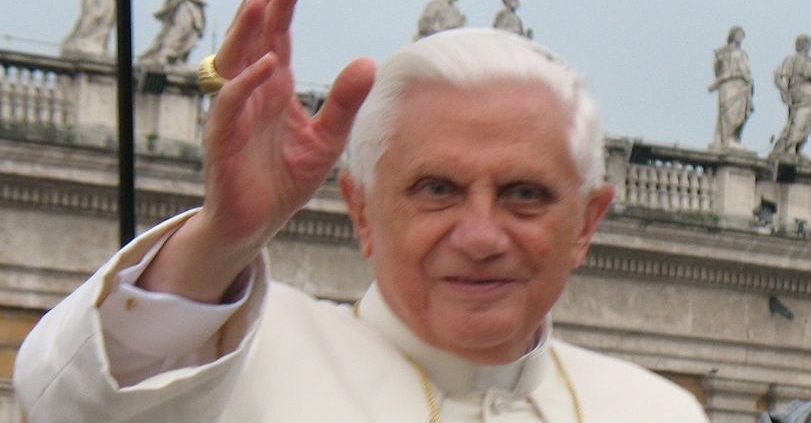
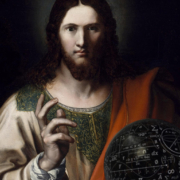
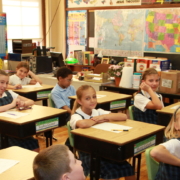 St. Agnes School, St. Paul, MN
St. Agnes School, St. Paul, MN